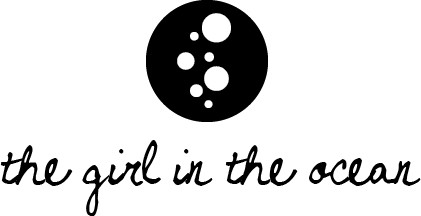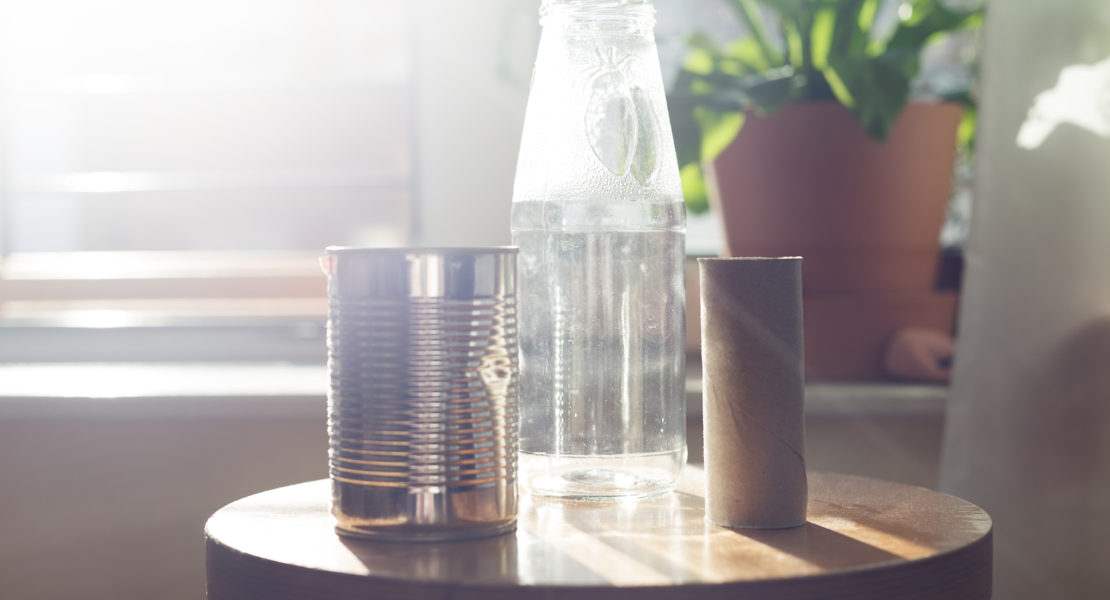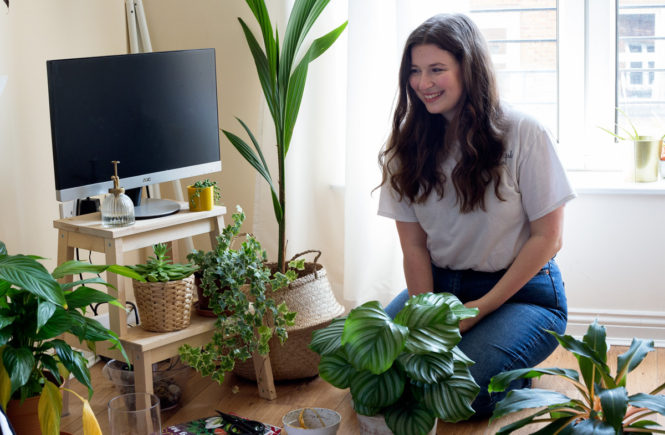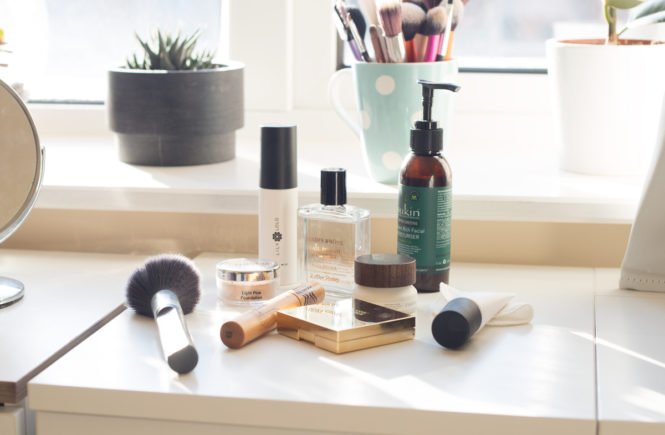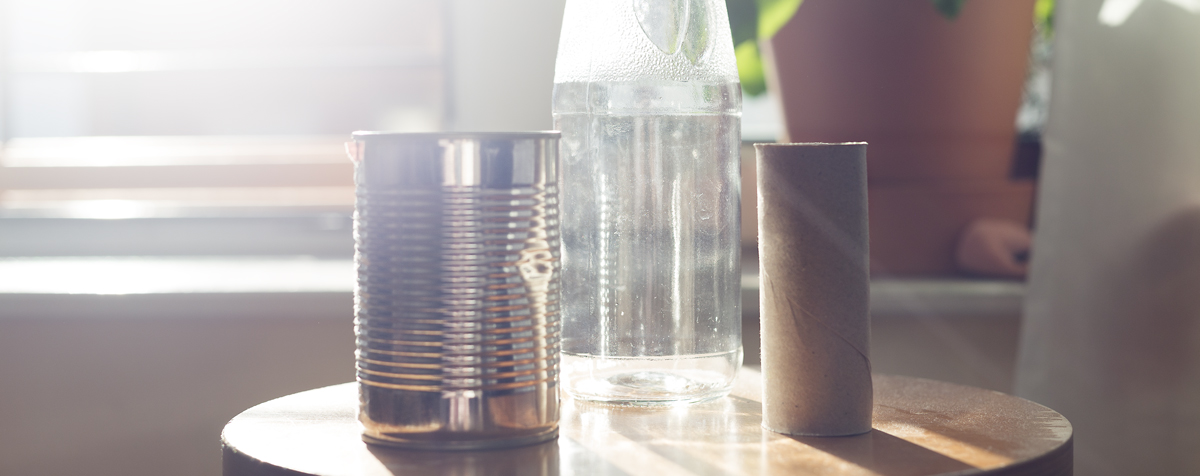
I think most of us can admit to one thing : We don't really know what our exact local recycling laws are.
I know I can! In doing the research for the blog, I started paying more attention to what I'm doing with my recyclables.
I mean I always assumed the rules were pretty much the same everywhere right? Wrong!
Take this per example: Montreal recycles plastics 1 to 5 and glass everywhere, while in Dublin, the regular companies take plastics 1,2 and 5, and no glass.
No idea what I'm talking about? Read on.
By now, in 2017, we all know that we should be recycling and composting, that's it's great for the planet etc etc. The truth is, the process is still a bit unclear for everyone; do I wash my things before putting them in the bin? what can't go in the bin? Oh well I'll put it there anyway!
Not knowing could ruin an entire batch of recyclables.
Each material has its own set of recycling rules, and there are consequences when we get them mixed up. But I promise it's easy.
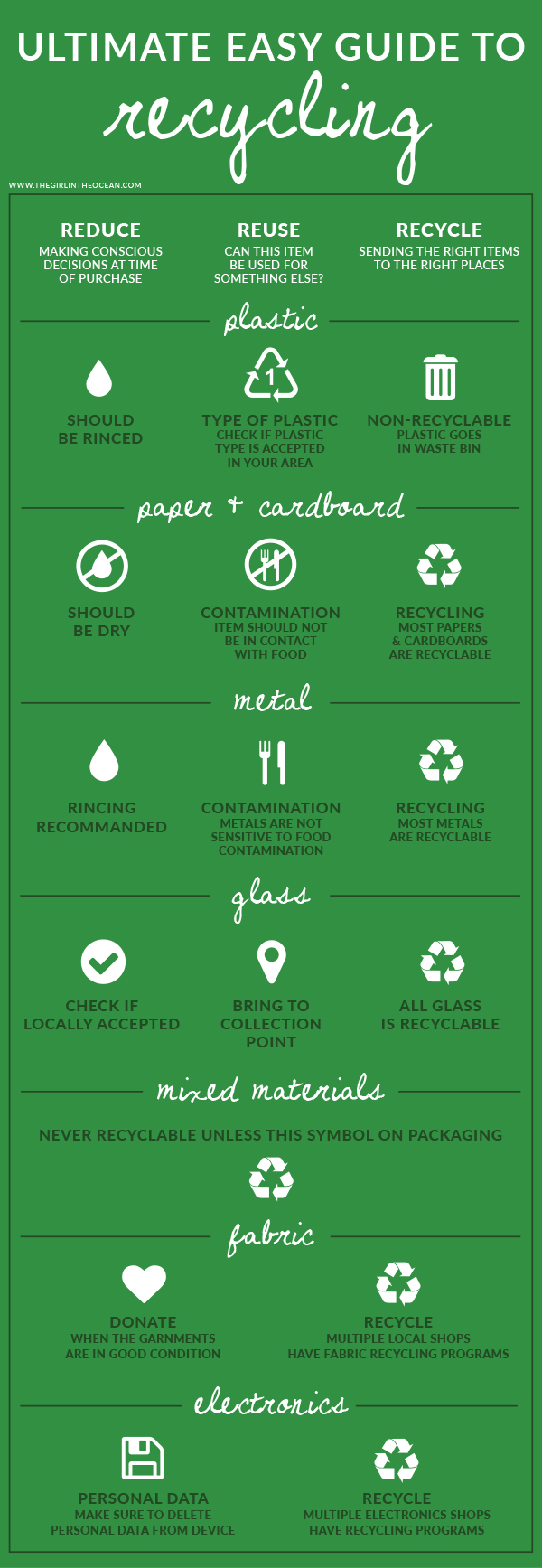
Quick Infographic Explainer
Before Recycling:
Reduce
Make conscious shopping decisions to minimise the amount of waste you produce.
Reuse
Ask yourself if the item can serve to something else before being recycled
Recycle
You're used your object to its limits, fair enough, time to recycle it!
Plastics
Rince
It's better to rince plastic things before putting them in the bin.
Type of plastic (Resin Identification Code)
As you may or may not know, all plastic is categorized with a number usually found at the bottom of the packaging between triangular arrows. These numbers range from 1 to 7, and the category determines if the plastic is accepted to be recycled or not depending on your municipality. You can read on here about what these numbers actually mean.
Non-recyclable
Depending on where you live, some plastics are not recyclable and have to be thrown in the trash. There is no use in putting them in the recycling bin any, this might cause problems to the recycling equipment.
Paper & Cardboard
Dry
These need to be dry when recycling, as wet fiber is too weak to be recycled. If your paper is wet, you can compost it!
Contamination
It's also so so so important to remove items with food. If food were to end up in the paper paste they make with the item, they will have to trash the entire batch.
Metal
Metals are easy. They are not sensitive to food contamination and most of them are easily recyclable.
Glass
All glass is recyclable, but not picked up everywhere. Check locally if you need to bring your bottles somewhere specific.
Mixed materials
Anything that is mixed together (ex. waxed cardboard) can't be recycled as centers don't have the technology to seperate materials. However, some items with the Mobius loop are made to be recycled.
Fabrics + Electronics
Donate what is in good condition. For the rest, loads of stores have recycling programs where you can bring your materials in store (sometimes you even get money back!). Just make sure to remove all personal data form your electronics beforehand!
